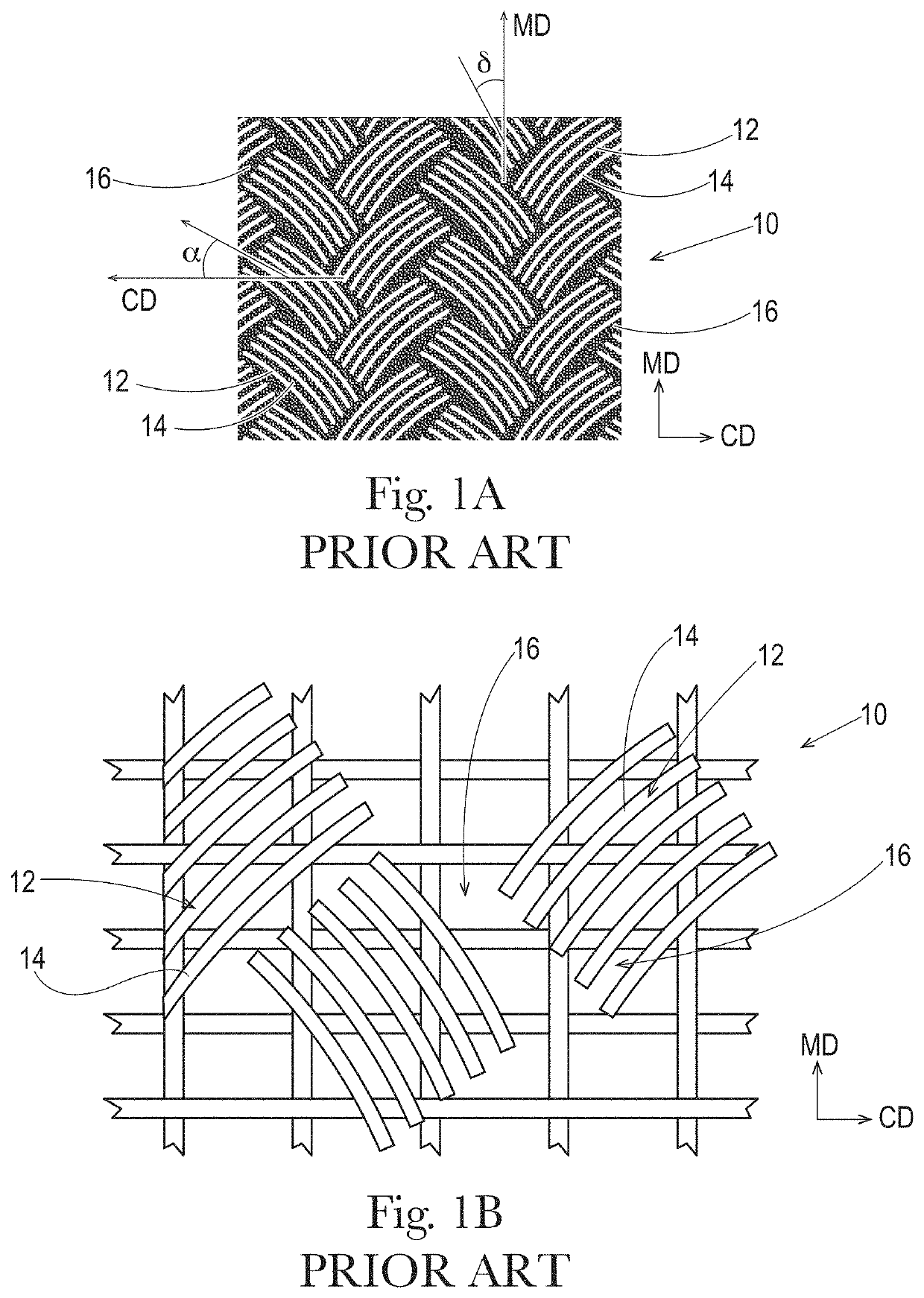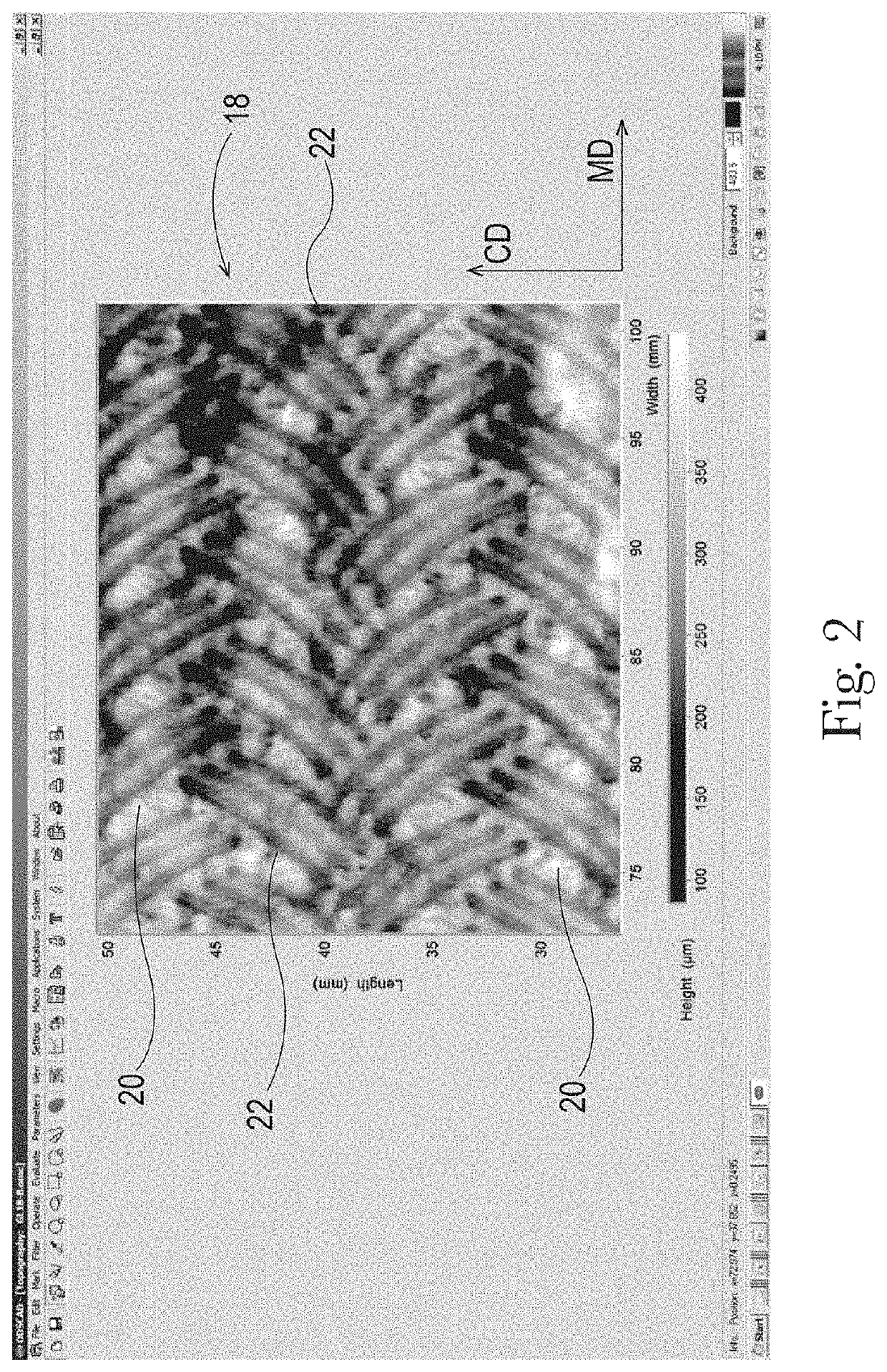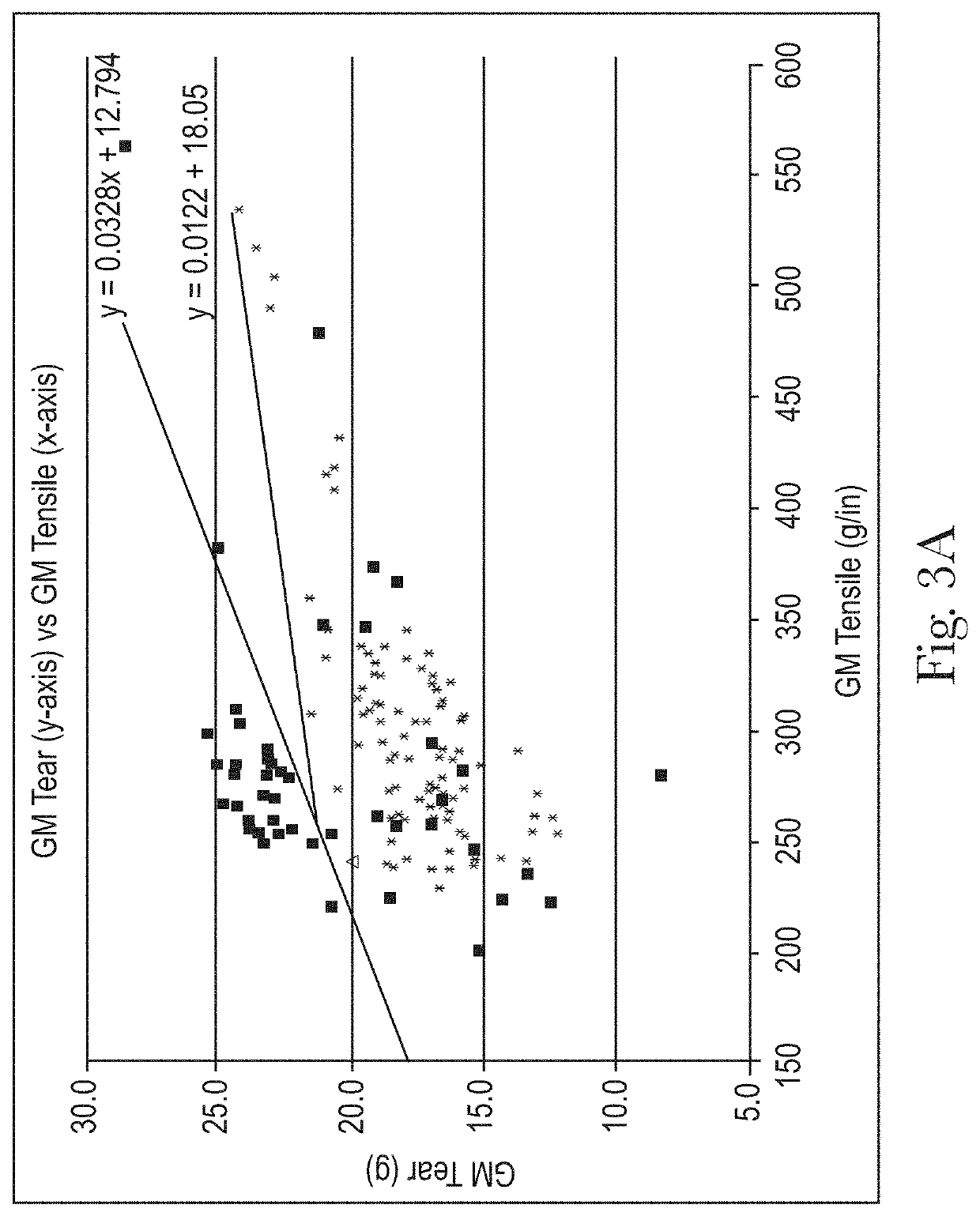Sanitary Tissue Products
a technology of sanitary tissue and products, applied in the field of sanitary tissue products, to achieve the effect of improving tear strength, improving tear strength, and increasing tear strength values
- Summary
- Abstract
- Description
- Claims
- Application Information
AI Technical Summary
Benefits of technology
Problems solved by technology
Method used
Image
Examples
example 1
ir-Drying Belt
[0182]The following Example illustrates a non-limiting example for a preparation of a sanitary tissue product comprising a fibrous structure according to the present invention on a pilot-scale Fourdrinier fibrous structure making (papermaking) machine.
[0183]An aqueous slurry of eucalyptus (Fibria Brazilian bleached hardwood kraft pulp) pulp fibers is prepared at about 3% fiber by weight using a conventional repulper, then transferred to a hardwood fiber stock chest. The eucalyptus fiber slurry of the hardwood stock chest is pumped through a stock pipe to a hardwood fan pump where the slurry consistency is reduced from about 3% by fiber weight to about 0.15% by fiber weight. The 0.15% eucalyptus slurry is then pumped and distributed in the top and bottom chambers of a multi-layered, three-chambered headbox of a Fourdrinier wet-laid papermaking machine.
[0184]Additionally, an aqueous slurry of eucalyptus (Fibria Brazilian bleached hardwood kraft pulp) pulp fibers is prepa...
example 2
ir-Drying Belt
[0194]The following Example illustrates a non-limiting example for a preparation of a sanitary tissue product comprising a fibrous structure according to the present invention on a pilot-scale Fourdrinier fibrous structure making (papermaking) machine.
[0195]An aqueous slurry of eucalyptus (Fibria Brazilian bleached hardwood kraft pulp) pulp fibers is prepared at about 3% fiber by weight using a conventional repulper, then transferred to a hardwood fiber stock chest. The eucalyptus fiber slurry of the hardwood stock chest is pumped through a stock pipe to a hardwood fan pump where the slurry consistency is reduced from about 3% by fiber weight to about 0.15% by fiber weight. The 0.15% eucalyptus slurry is then pumped and distributed in the top, center, and bottom chambers of a multi-layered, three-chambered headbox of a Fourdrinier wet-laid papermaking machine.
[0196]Additionally, an aqueous slurry of NSK (Northern Softwood Kraft) pulp fibers is prepared at about 3% fibe...
example 3
ir-Drying Belt
[0204]The following Example illustrates a non-limiting example for a preparation of a sanitary tissue product comprising a fibrous structure according to the present invention on a pilot-scale Fourdrinier fibrous structure making (papermaking) machine.
[0205]An aqueous slurry of eucalyptus (Fibria Brazilian bleached hardwood kraft pulp) pulp fibers is prepared at about 3% fiber by weight using a conventional repulper, then transferred to a hardwood fiber stock chest. The eucalyptus fiber slurry of the hardwood stock chest is pumped through a stock pipe to a hardwood fan pump where the slurry consistency is reduced from about 3% by fiber weight to about 0.15% by fiber weight. The 0.15% eucalyptus slurry is then pumped and distributed in the top and bottom chambers of a multi-layered, three-chambered headbox of a Fourdrinier wet-laid papermaking machine.
[0206]Additionally, an aqueous slurry of NSK (Northern Softwood Kraft) pulp fibers is prepared at about 3% fiber by weig...
PUM
| Property | Measurement | Unit |
|---|---|---|
| angle | aaaaa | aaaaa |
| density | aaaaa | aaaaa |
| density | aaaaa | aaaaa |
Abstract
Description
Claims
Application Information
 Login to View More
Login to View More - R&D
- Intellectual Property
- Life Sciences
- Materials
- Tech Scout
- Unparalleled Data Quality
- Higher Quality Content
- 60% Fewer Hallucinations
Browse by: Latest US Patents, China's latest patents, Technical Efficacy Thesaurus, Application Domain, Technology Topic, Popular Technical Reports.
© 2025 PatSnap. All rights reserved.Legal|Privacy policy|Modern Slavery Act Transparency Statement|Sitemap|About US| Contact US: help@patsnap.com



